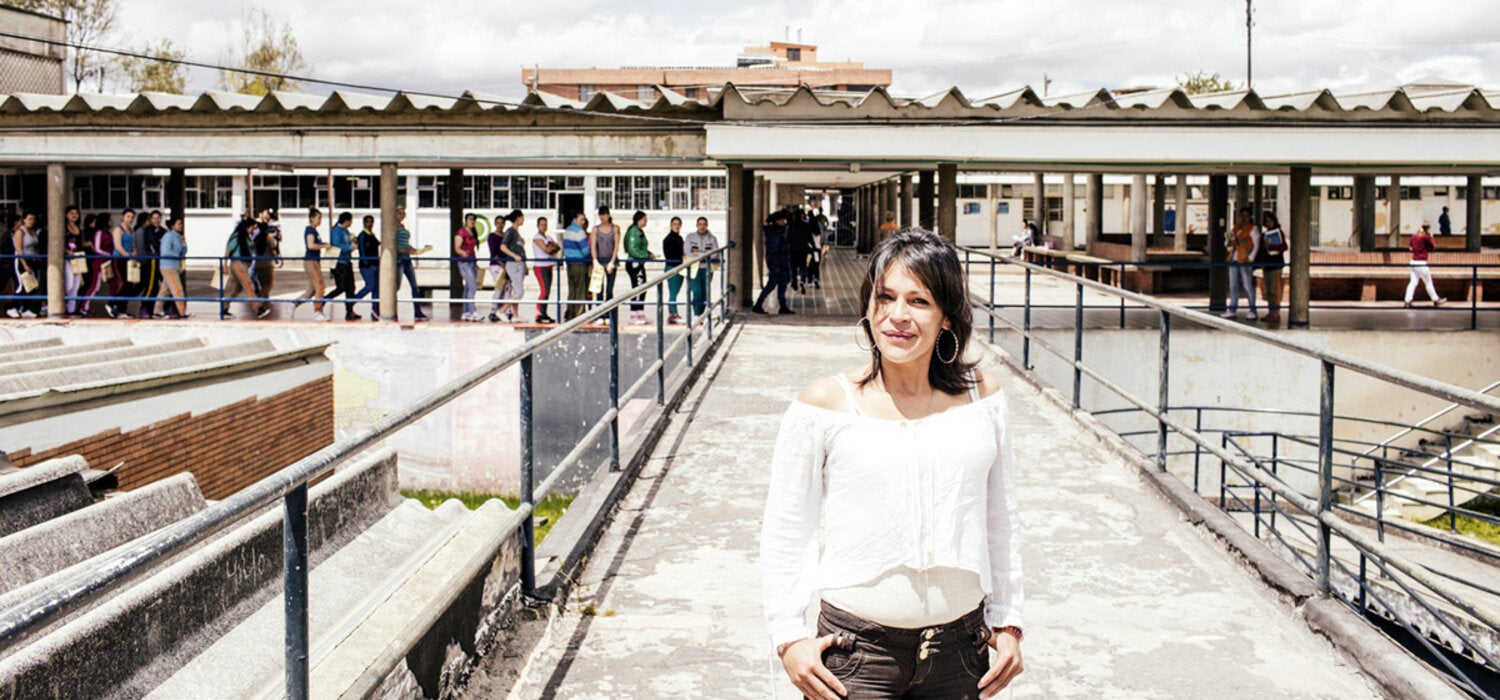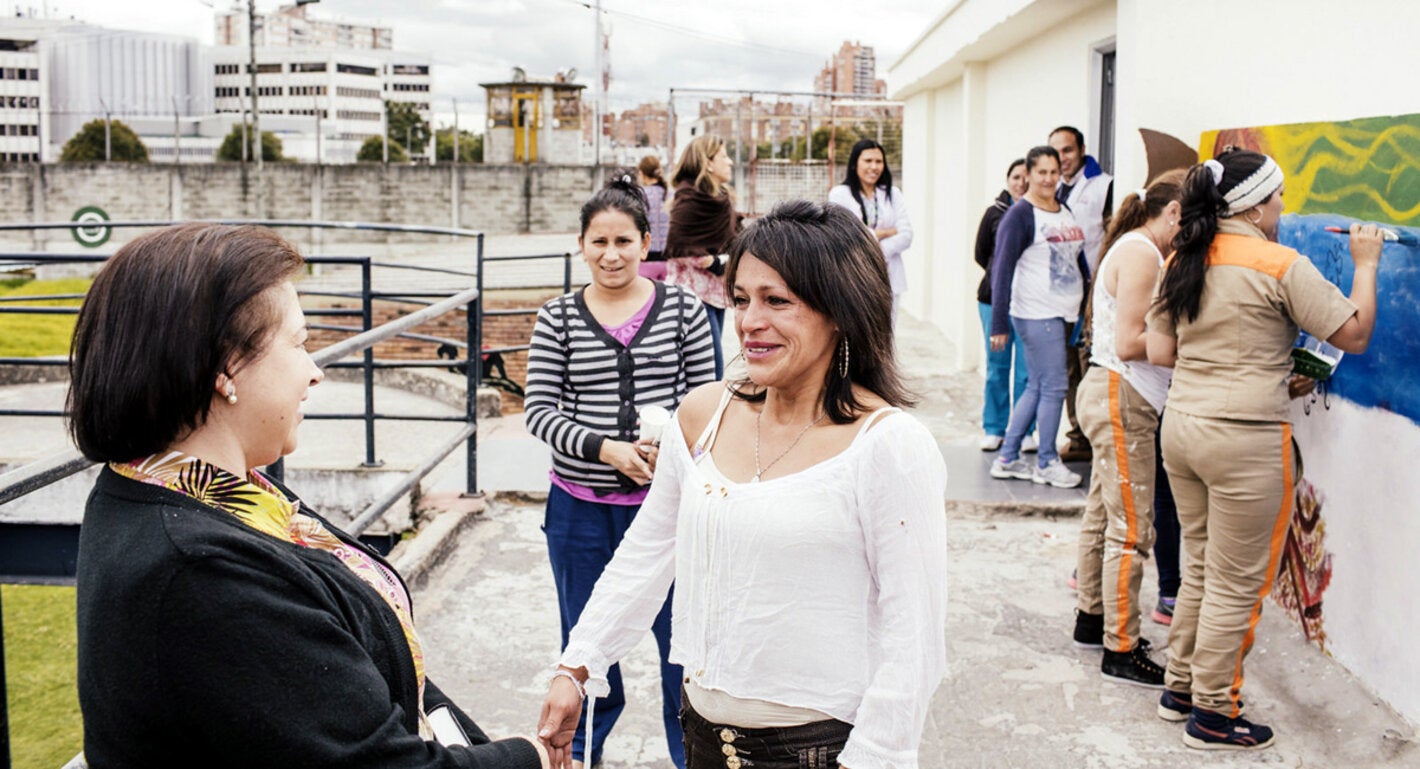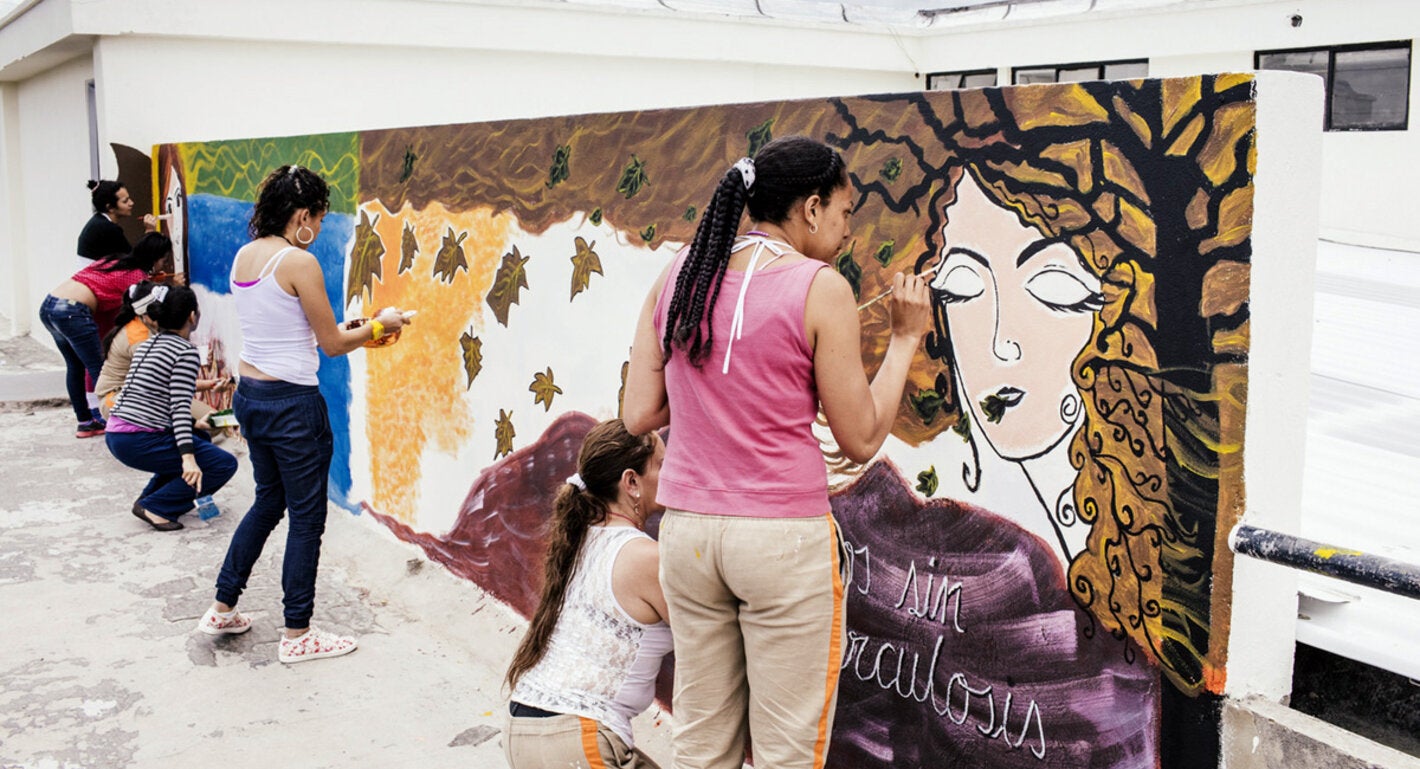Along the way, Nelly met Claudia Jeréz, a health technician who for the past six years has been assigned to the TB program at Simón Bolívar Hospital. Claudia became her savior. When Nelly sees Claudia--"my boss," she calls her--her eyes light up, her voice catches, and her heart swells. "You have no idea what I feel inside," she says. Nelly recognizes that she managed to recover from tuberculosis thanks to Claudia's single-minded efforts: supervising her daily to be sure she was taking her medication, while also helping her refocus her life to discover who she was.
After the streets, prison became Nelly's home, and Claudia followed her there. They made a "pact": Nelly promised to take her medicine without fail, and Claudia promised to monitor her case, evaluate her, advise her, love her. While still in prison, Nelly continued taking her medication and learning more about TB, and how to prevent and control it. And the word spread among her cellmates.
In order for a tuberculosis patient to recover, the full treatment is necessary for six continuous months. Attentive monitoring by health workers is also required. Claudia and her team visit prisons, shelters, and homes to see TB patients. They put a great deal of effort into saving the lives of people like Nelly, who against all odds, overcame the disease, gained weight, joy, and "courage for life," she acknowledges.





